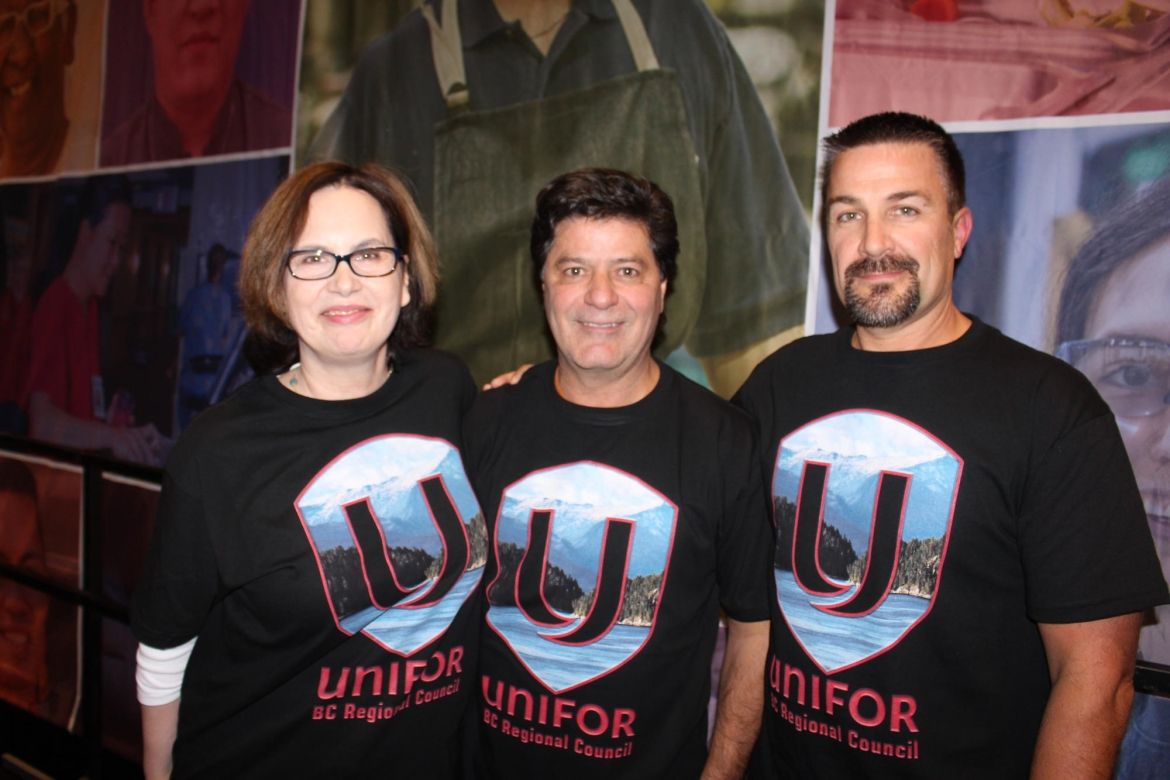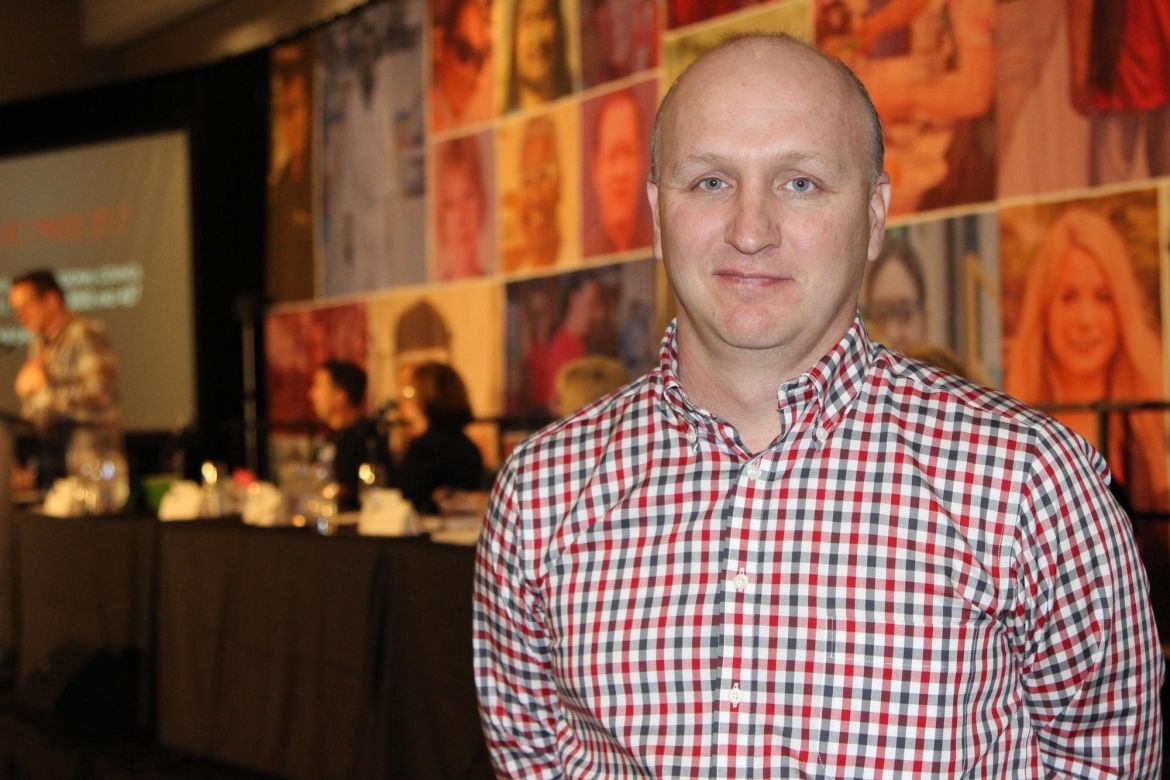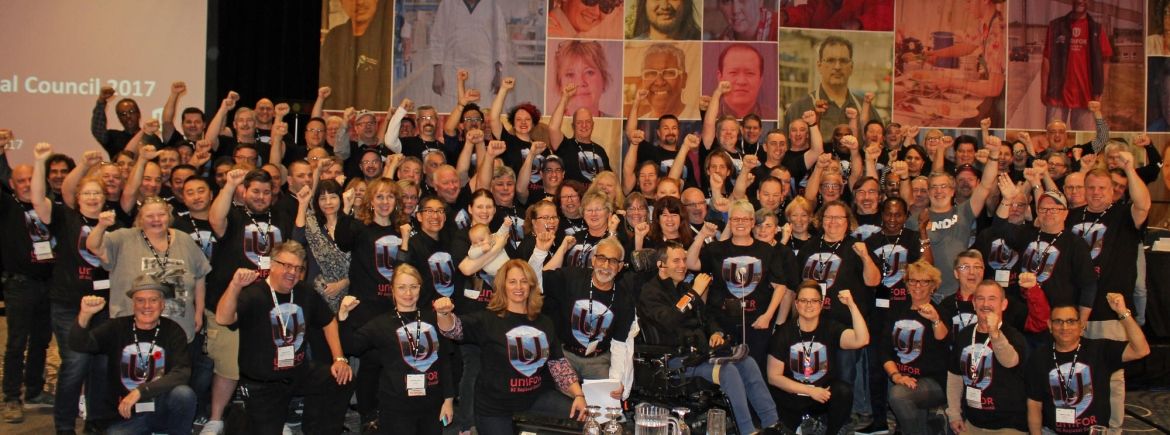
Share
“Our job as a union is to take action, speak out, and take to the streets to make our voices heard,” said Jerry Dias,National President in a speech in Richmond.
Dias spoke about Unifor’s leadership role at the NAFTA talks and the union’s efforts to ensure tougher and enforceable labour standards are part of a renewed trade deal.
“You will see the wrath of organized labour like nothing you have ever seen if you mess this up,” said Dias, who pointed out that Unifor wants to improve working conditions for Mexican and American workers, where 28 States have Right-to-Work laws, and 50% more worker deaths.
The theme of protecting workers was also part of several powerful messages from other keynote speakers who shared personal stories and lessons on how to rid workplace stigma surrounding mental health and safety. On the topic of mental health delegates heard from a Hibernia off shore oil worker, who learned difficult lessons after losing 17 brothers in the 2009 Cougar helicopter crash.
“People hear the words ‘mental health’ and they run in the other direction and we need to stop doing that,” said Steve Tizzard, of Local 2121, who found himself and many co-workers suffering from PTSD in the years after the crash.
Tizzard is now a certified mental health first aid instructor and a Certified Psychological Health and Safety Advisor and shared details of his award winning mental wellness program that has proven to save lives in his workplace.
“If we can have a conversation about back pain in the workplace we can have a conversation about mental health, which doesn’t discriminate,” said Tizzard who reported suicides of fellow workers and managers alike.
Curtis Weber shared his story of barely surviving a preventable accident that left him a double amputee with third and fourth degree burns to more than 60% of his body. Weber said workers must have the tools to feel safe to speak up about any workplace hazards.
“Orientation and safety training could have leant me enough courage to speak up and voice my concern that day,” said Weber, who was electrocuted while moving a grain bin near a power line in Saskatchewan when he was 17.
Delegates were also briefed on Unifor’s “No BS” campaign which outlines concerns about behavior based safety programs. The “No BS” campaign is focused on not letting employers sidestep their responsibilities under the labour code, and maintaining joint health and safety committees.
“These are programs that are not looking after your safety in the workplace, it’s not about finding the root cause of the accident, it’s about blaming the worker,” said Sari Sairanen, Director of Health Safety and Environment in a presentation.
The second day of council closed with Ginger Gosnell-Myers from the City of Vancouver Aboriginal Relations who offered an important lesson on the role that reconciliation can play in improving the lives of Indigenous peoples and communities in Vancouver. Gosnell-Myers stressed the need for education, culture, music and shared stories to build and strengthen a shared healthy city.
“Ultimately this is about providing services and about moving forward together. The more we identity and include Indigeneous people in every part, the more our city will be the most unique in the world.”





